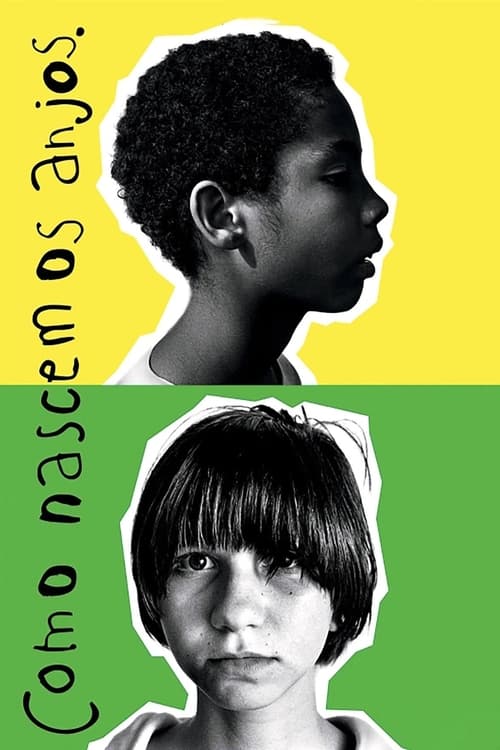
Ask Your Own Question
What is the plot?
More Movies Like This
Browse All Movies →What is the ending?
In the ending of "Friendly Fire," the film culminates in a poignant and emotional confrontation between the characters as they grapple with the consequences of war and personal loss. The story concludes with a sense of unresolved grief and the haunting impact of the past on the present.
As the film progresses towards its conclusion, we see the main character, a mother named Mary, struggling with the death of her son, who was killed in action during the Vietnam War. The emotional weight of her loss is palpable, and she is determined to seek the truth about his death. The narrative builds to a climax as Mary confronts the military officials and the realities of the war that took her son away from her.
In the final scenes, Mary's journey leads her to a deeper understanding of the complexities of war and the personal sacrifices made by soldiers and their families. The film closes with Mary reflecting on her son's life and the impact of his death, leaving viewers with a lingering sense of sorrow and the harsh realities faced by those affected by war.
Now, let's delve into the ending in a more detailed, chronological narrative.
As the film nears its conclusion, Mary, portrayed with a raw intensity, is seen sitting in her dimly lit living room, surrounded by photographs of her son. The walls echo with memories, and the silence is heavy with her grief. She clutches a letter from the military, her hands trembling as she reads the words that detail her son's death. The camera lingers on her face, capturing the anguish and confusion that swirl within her.
In the next scene, Mary decides to confront the military officials who have been evasive about the circumstances surrounding her son's death. She arrives at a military base, her heart pounding with a mix of determination and fear. The stark, sterile environment of the base contrasts sharply with her emotional turmoil. As she meets with the officials, their cold demeanor and bureaucratic language only deepen her frustration. She demands answers, her voice rising with desperation as she seeks to understand how her son could have been killed in a friendly fire incident.
The tension escalates as Mary's confrontation reveals the harsh realities of military operations and the tragic mistakes that can occur in war. The officials, while sympathetic, remain detached, emphasizing the need for secrecy and protocol. Mary's emotional state shifts from anger to despair as she realizes that the truth may never fully be revealed. The camera captures her tears, a testament to the unbearable weight of her loss.
In a pivotal moment, Mary is shown visiting the cemetery where her son is buried. The scene is serene yet haunting, with the sun setting in the background, casting long shadows over the gravestones. She kneels by her son's grave, her fingers tracing the engraved name. The silence is profound, and her sobs echo in the stillness. This moment encapsulates her internal struggle, as she grapples with the finality of death and the love she still holds for her son.
As the film draws to a close, Mary is seen walking away from the cemetery, her posture slightly slumped, embodying the weight of her grief. The camera follows her, capturing the solitary figure against the vastness of the landscape. The emotional resonance of her journey is palpable, as she reflects on the sacrifices made by her son and the countless others affected by the war.
The final scenes leave viewers with a sense of unresolved sorrow. Mary's fate is one of continued mourning, as she carries the memory of her son with her, forever changed by the experience. The film ends on a somber note, emphasizing the enduring impact of loss and the complexities of love and sacrifice in the face of war. The screen fades to black, leaving the audience to ponder the profound themes of grief, truth, and the human cost of conflict.
Is there a post-credit scene?
The movie "Friendly Fire," produced in 1998, does not have a post-credit scene. The film concludes its narrative without any additional scenes or content after the credits roll. The story focuses on the emotional and psychological impact of war, particularly through the lens of a mother grappling with the loss of her son, who was killed in action. The film's ending emphasizes the themes of grief and the consequences of military decisions, leaving the audience with a poignant reflection rather than a continuation of the story.
What events lead to the tragic death of the main character's son?
In 'Friendly Fire', the tragic death of the main character's son, a soldier named Michael, occurs during a military operation in the Gulf War. The film details the confusion and chaos of the battlefield, highlighting the miscommunication and lack of clarity that ultimately leads to Michael being mistakenly killed by friendly fire. His mother, played by Mary McDonnell, grapples with the devastating news and the circumstances surrounding his death.
How does the mother cope with her son's death throughout the film?
The mother, portrayed by Mary McDonnell, experiences a profound emotional journey as she copes with her son's death. Initially, she is in shock and denial, struggling to understand how such a tragedy could happen. As the story unfolds, she confronts her grief through various means, including seeking answers from the military, attending support groups, and ultimately advocating for accountability regarding the circumstances of her son's death.
What role does the military play in the family's quest for answers?
The military's role in 'Friendly Fire' is pivotal as the family seeks answers about the circumstances of Michael's death. The film portrays the bureaucratic obstacles and the emotional detachment often found within military institutions. The family faces challenges in obtaining information, and the military's initial reluctance to acknowledge the incident as friendly fire adds to the family's pain and frustration.
How does the film depict the relationship between the mother and her husband after their son's death?
The relationship between the mother and her husband becomes strained after their son's death. The film illustrates their differing coping mechanisms; while the mother is vocal and seeks justice, the father tends to withdraw emotionally. This divergence creates tension and conflict, as they struggle to support each other while dealing with their own grief. Their interactions reveal the complexities of mourning and the impact of loss on familial bonds.
What specific actions does the mother take to seek justice for her son?
In her quest for justice, the mother takes several specific actions throughout 'Friendly Fire'. She begins by writing letters to military officials, demanding answers about her son's death. She also attends meetings and rallies, where she connects with other families affected by similar tragedies. Her determination leads her to confront military personnel directly, advocating for transparency and accountability regarding the policies that led to her son's death.
Is this family friendly?
"Friendly Fire," produced in 1998, is a poignant and emotionally charged film that deals with the heavy themes of war, loss, and the impact of military decisions on families. Given its subject matter, it may not be considered family-friendly for younger audiences or sensitive viewers.
Potentially objectionable or upsetting aspects include:
-
Depictions of Grief: The film explores the profound sorrow of a family dealing with the death of a loved one in combat, which may be emotionally distressing.
-
War Themes: The narrative centers around the consequences of war, including discussions of military actions and their fallout, which can be intense and unsettling.
-
Emotional Turmoil: Characters experience significant emotional pain, including anger, confusion, and despair, which may be difficult for children to process.
-
Confrontations: There are scenes of conflict and confrontation that may be intense, reflecting the struggles of the characters as they navigate their grief and anger.
-
Realistic Portrayal of Loss: The film does not shy away from the harsh realities of loss and the impact it has on families, which can be heavy and thought-provoking.
Overall, the film's serious themes and emotional depth may not be suitable for younger viewers or those who are sensitive to such topics.






























